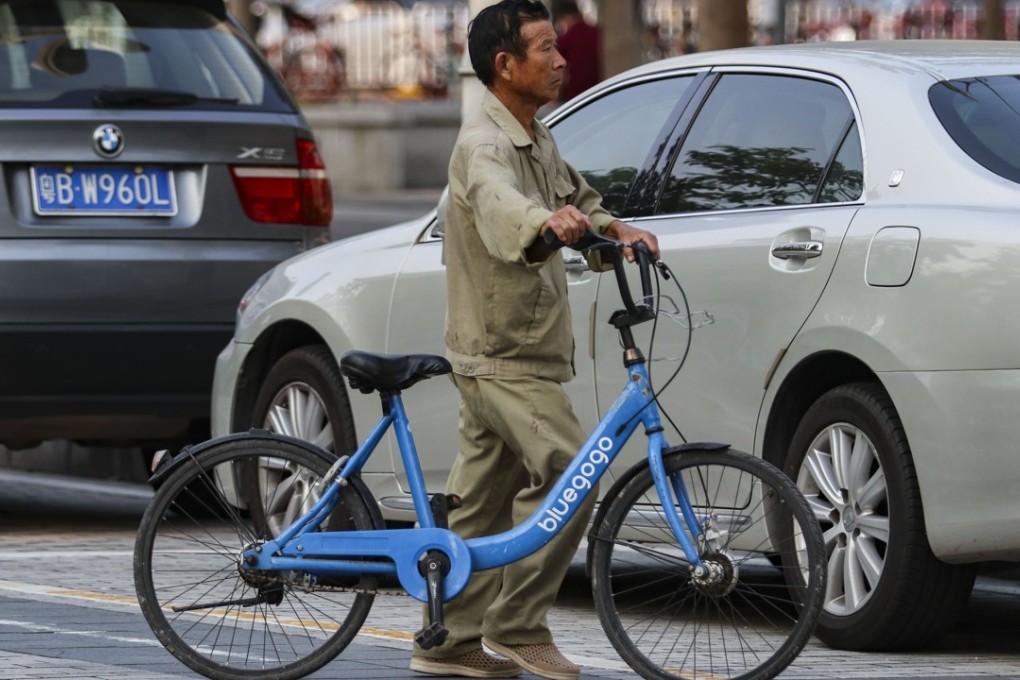Didi Chuxing to expand reach into China’s bike-sharing market with acquisition of Bluegogo
China’s biggest ride-hailing operator may be gearing up to dominate another market by buying one of the larger bike-sharing companies in the country

More than a year after taking over the operations of Uber Technologies in China, Didi Chuxing is looking poised to drive consolidation in the country’s bike-sharing market with its reported purchase of bankrupt start-up Bluegogo.
Didi, which counts hi-tech giants Apple, Tencent Holdings and Alibaba Group Holding among its biggest shareholders, has agreed to acquire what was once the country’s third-largest bike-sharing operator, according to reports by Caixin and news site 36kr.com, which cited sources at Didi and Bluegogo.
It may also quash a widely speculated merger between Mobike and Ofo, which have a combined 95 per cent share of the country’s ride-sharing market.
Didi last year took part in two fundraising rounds of Ofo, which made it the bike-sharing company’s largest single investor with a 25 per cent stake.
A representative of Didi declined to comment on the reported deal, which is yet to close. Executives at Bluegogo could not be reached for comment.